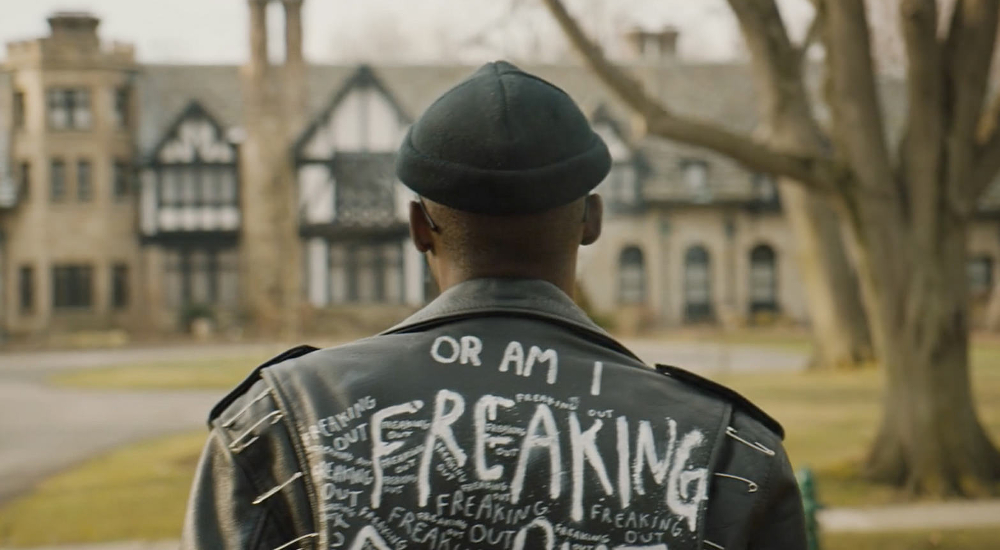“People are motivated by love, or people are motivated by fear.”
Harrowing and heavy, Rashid Johnson’s Native Son is a unique film that examines a plethora of social stigmas and issues as we watch a well-intended young black man navigate life under the eye of social perception.
A modern retelling of Richard Wright’s 1940 novel, Johnson is able to interlace a series of events, examining a timely story of living in America amid the growing feelings of fear, racism, and understanding.
Split into three parts, Native Son centers on Bigger “Big” Thomas, an African American man who lives with his single mother and siblings in a small apartment in Chicago. Boasting green hair, a dialogue covered jacket, and a relationship he is only half-heartedly invested in (a role performed flawlessly by Kiiki Layne), Big is patiently sifting through his options, refusing to get too bogged down. That is until a job becomes available as the driver for the prestigious Dalton family.
Though Big serves as the entire family’s driver, Johnson focuses heavily on Big’s budding relationship with the Dalton’s college-aged daughter Mary. Progressive and vocal to a near fault, Mary is a character just as unique and addictive as Big himself. Her candid demeanor regarding race, politics, and relationships creates a tension for those watching on as she works hard to understand Big’s outlook on the world - an outlook that even Big himself isn’t fully aware of.
As tension builds and the relationship between Big and Mary escalates, you can’t help but feel that something is off. Credit both Aston Sanders and Margaret Qualley for crafting realistic characters who appear to act on impulse, not on predetermined storylines. Their chemistry is natural, opening the door for their relationship to evolve and ultimately reach a point where it must flourish or break down - a forthcoming moment that we have all seen coming.
When the inevitable finally occurs, Johnson doesn’t allow it to pass quickly. Instead, he dwells on the act, forcing you to squirm in your seat as you struggle with the shock and uncomfortableness of it all. The result is an eerie, gut-wrenching emotion that is difficult to describe and even harder to understand fully.
Johnson’s stylistic approach to the story helps to keep you engaged. A fun and fresh time-warp sequence is revisited often throughout the film, offering up a sense of staleness as our lead protagonist slowly maneuvers his way through life, dreaming big and hoping for a bright future. That all comes crashing down during the pivotal third act, one that sheds the layers and gives viewers a humbling look at a young man whose life has just forever been altered.
It is these intimate moments of detail that help to give Native Son its rich and unapologetic tone. The film isn’t meant to be an “easy” watch - the final twenty minutes will make sure of that. Nor is it supposed to be a story that is easily forgettable. Instead, its a dark and ominous look at a situation that is all too relevant. Add in a cast that understands the bigger picture, and you can’t help but be affected.

